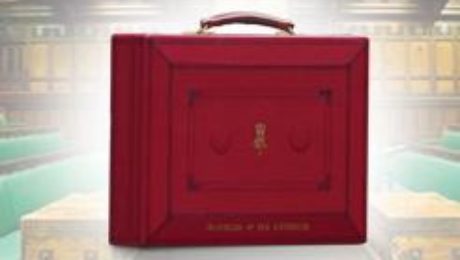Autumn Statement 2022: £13.6bn business rate support
The Autumn Statement set out a package of targeted support to help with business rates costs worth £13.6bn over the next five years
The business rates multipliers will be frozen in 2023-24, and upward transitional relief caps will provide support to ratepayers facing large bill increases following the revaluation.
From 1 April 2023, business rate bills in England will be updated to reflect changes in property values since the last revaluation in 2017.
The relief for retail, hospitality and leisure sectors will be extended and increased, and there will be additional support for small businesses.
Upwards transitional relief will support properties by capping bill increases caused by changes in rateable values at the 2023 revaluation. This £1.6bn of support will be funded by the Exchequer rather than by limiting bill decreases, as at previous revaluations.
The ‘upward caps’ will be 5%, 15% and 30%, respectively, for small, medium, and large properties in 2023-24, and will be applied before any other reliefs or supplements.
The 300,000 properties with falls in rateable values will see the full benefit of that reduction in their new business rates bill from April 2023.
Over the life of the three-year list the scheme will support around 700,000 ratepayers.
Support for eligible retail, hospitality, and leisure businesses is being extended and increased from 50% to 75% business rates relief up to £110,000 per business in 2023-24. Around 230,000 properties will be eligible to receive this increased support worth £2.1bn.
Rates increases for the smallest businesses losing eligibility or seeing reductions in small business rate relief (SBRR) or rural rate relief (RRR) will be capped at £600 per year from 1 April 2023. This is support worth over £500 million over the next three years and will protect over 80,000 small businesses who are losing some or all eligibility for relief.
This means no small business losing eligibility for SBRR or RRR will see a bill increase of more than £50 per month in 2023-24.
At Autumn Budget 2021 the government announced a new improvement relief to ensure ratepayers do not see an increase in their rates for 12 months as a result of making qualifying improvements to a property they occupy. This will now be introduced from April 2024. This relief will be available until 2028, at which point the government will review the measure.
Gerry Biddle, business rates lead at Deloitte, said: ‘The Chancellor’s package of benefits for business rate payers was surprisingly generous, amounting to savings of £14bn over next five years.
‘Hospitality, leisure and retail businesses will benefit from a further freeze of the current 50% relief before it increases to 75% with effect from 1 April 2023. It will be available for 12 months, capped at £110,000 relief per business.
‘A typical retailer occupying a unit of £60,000 rateable value will save £7,500 in the 12 months from 1 April 2023.’
Online sales tax abandoned
The government has also announced that it will not go ahead with the online sales tax due to its complexity.
The idea of an online sales tax was put forward by certain stakeholders to ‘rebalance’ the business rates bills paid by in-store retailers in comparison to their online counterparts.
The government’s decision reflects concerns raised about the complexity of the proposed tax and the risk of creating unintended distortion or unfair outcomes between different business models. Stakeholders also expected it would lead to higher prices for consumers.
‘Bringing in a brand new tax to remedy perceived unfairness in the business rates regime would have been a disproportionate way of addressing the challenges facing the high street,’ said the Chartered Institute of Taxation.
‘Introducing a tax that required all transactions to be deemed in or out of its scope, especially where borderlines exist such as goods versus services, business versus private consumers, and the nature of any exemptions or special rules, would have been hugely complex.
‘It has always been our view that online sales tax should not be seen as an alternative to wider business rates reform.’
- Published in Business Rates
Rates rise to pile more pressure on SMEs
UK business groups have described the Bank of England’s interest rate rise as ‘ill timed’ as it will only pile on more pressure to SMEs already struggling with debt repayment burdens
The Federation of Small Businesses (FSB) and the British Chamber of Commerce (BCC) have both expressed concern over the announcement from the Bank of England (BoE) yesterday, which increased interest rates to 0.75%.
The groups stated that the move will mean higher debt costs for many businesses as they try to continue to fight through the economic consequences of the pandemic with the BCC stating that the move was ‘ill-timed against a backdrop of growing domestic and global headwinds’.
In a statement released by the FSB, national chair Martin McTague stated that SMEs were being constantly ‘undermined by a vicious cycle of rising costs’ as they try to make up for the time lost over the last two years of the Covid-19 pandemic.
The BCC stated that while interest rates remain low ‘by historic standards’ the latest rise will be viewed by many as a further step in the ‘prolonged period of aggressive monetary tightening’ at a time when consumers and businesses are struggling as increasing the interest rate will do ‘little to curb the global causes behind this inflationary surge’.
The BCC added that the move will only ‘damage confidence’ and ‘deepen the financial squeeze on consumers and businesses.
In a statement released by the FSB, McTague said: ‘A lot of small firms have had no choice but to increase prices in response, but this isn’t always an option, especially in sectors still trying to entice customers back, such as hospitality and tourism, and their suppliers.
‘At the same time, consumer confidence has plunged and the cost-of-living squeeze has intensified, with record fuel prices and sky-high utility bills meaning loss of disposable income.
‘Small businesses increasingly feel that the Government is indifferent to the cost pressures they face.
‘The planned hikes to national insurance and dividend taxation taking effect in a matter of days, alongside an income tax threshold freeze, will, for many, be the final straw.’
Both the FSB and the BCC have urged the Chancellor to consider this when he releases his Spring Statement next week with the BCC stating that it is vital for the Chancellor to priorities ‘the escalating cost of doing business’.
The BCC called on the Chancellor to delay the National Insurance Increase (NIC) and to introduce a temporary energy price cap for small businesses.
Suren Thiru, head of economics, at the BCC: ‘This would give firms the headroom to keep a lid on prices, protect jobs and make an investment that is so vital to sustaining our economic prospects.’
As well as support for rising energy costs, the FSB calls for an increase in the Employment Allowance and a rise in the business rates relief threshold on rates.
The FSB also stated a ‘pay as you grow’ option on other state-loan-backed schemes to allow businesses to spread the pressure of their debt repayments.
McTague concluded: ‘We urgently need to see the Chancellor ease the pressure on the five and a half million small firms and sole traders on which our recovery will depend.’
- Published in Business Rates
Budget 2021: business rate cut for hospitality and leisure
As the hospitality industry continues to recover from the pandemic, the Chancellor announced significant discounts on business rates for specific sectors for the next 18 months
Over 90% of retail, hospitality and leisure businesses will receive at least 50% off their business rates bills in 2022-23.
To support local high streets as they adapt and recover from the pandemic, the government is introducing a new temporary business rates relief in England for eligible retail, hospitality and leisure properties for 2022-23, worth almost £1.7bn.
Up to 400,000 retail, hospitality and leisure properties will be eligible for the new, temporary £1.7bn of business rates relief next year. This will provide support until the next revaluation, helping the businesses that make UK high streets and town centres successful evolve and adapt to changing consumer demands.
Apart from reliefs in response to Covid-19, this is the biggest single-year cut to business rates in 30 years.
Chris Sanger, EY head of tax policy, said: ‘The Chancellor announced a number changes to business rates, which fell short of what some had called for. Nevertheless, business rates were cut in half for a further year for those in the retail, hospitality and leisure business, including local pubs. The half price offer for the next year will help, but does not address the long-term issue.’
The government is also freezing the business rates multiplier in 2022-23, a tax cut worth £4.6bn over the next five years. This will support all ratepayers, large and small, meaning bills are 3% lower than without the freeze.
From 2023, a new business rates relief will support investment in property improvements so that no business will face higher business rates bills for 12 months after making qualifying improvements to a property they occupy.
This will enable businesses to make improvements to their premises that support net zero targets, such as installing solar panels, and enhance productivity as employees return to the workplace.
From 2023, the government will introduce exemptions for eligible plant and machinery used in onsite renewable energy generation and storage, and a new 100% relief for eligible heat networks, to support the decarbonisation of buildings.
- Published in Business Rates
Business rates relief extended with £1.5 billion fund
The government is to extend business rates relief with a £1.5 billion fund targeted at those businesses unable to benefit from the current COVID-19 support.
Retail, hospitality and leisure businesses have not been paying any rates during the pandemic, as part of a 15 month-long relief which runs to the end of June this year.
However, many businesses ineligible for reliefs have been appealing for discounts on their rates bills, arguing the pandemic represented a ‘material change of circumstance’ (MCC).
The government says that market-wide economic changes to property values, such as from COVID-19, can only be properly considered at general rates revaluations, and will therefore be legislating to rule out COVID-19 related MCC appeals.
Instead, the government will provide a £1.5 billion pot across the country that will be distributed according to which sectors have suffered most economically, rather than on the basis of falls in property values. It says this will ensure the support is provided to businesses in England in the fastest and fairest way possible.
Chancellor of the Exchequer Rishi Sunak said:
‘Our priority throughout this crisis has been to protect jobs and livelihoods. Providing this extra support will get cash to businesses who need it most, quickly and fairly.
‘By providing more targeted support than the business rates appeals system, our approach will help protect and support jobs in businesses across the country, providing a further boost as we reopen the economy, emerge from this crisis, and build back better.’
Internet link: GOV.UK
- Published in Business Rates
Government announces review of business rates scheme
The government has published a call for evidence on the overhaul of the business rates system that applies in England.
The government announced at the 2020 Budget in March that it would conduct a review of the business rates system in England. It is seeking views from businesses, business representative organisations, local authorities, rating agents, others involved in the operation of the system and anyone interested in the business rates or wider tax system.
The call for evidence seeks views on how the business rates system currently works, issues to be addressed, ideas for change and a number of alternative taxes.
The government stated that it welcomes views on the multiplier and reliefs sections of the call for evidence by 18 September 2020, to inform an interim report in the autumn.
Internet link: TM Treasury consultations
- Published in Business Rates




